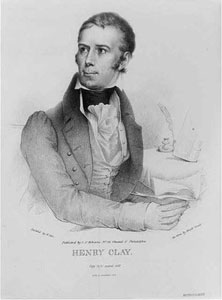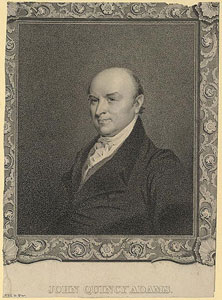Election of 1824

The House of Representatives would thus decide the outcome of the election of 1824. Clay did not have enough electoral votes to win the presidency himself, but as Speaker of the House, he could tip the balance in favor of one of the other three men. Crawford had recently suffered a stroke and was too ill to serve as president. Clay despised Jackson and considered him unfit for office, so he threw his support to Adams. The House then selected Adams as the winner.
The Corrupt Bargain





